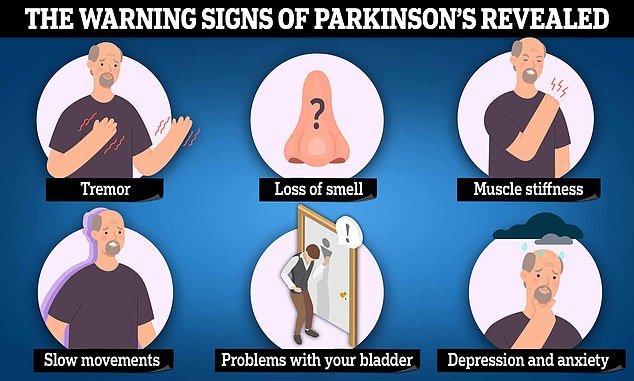Intensive speech therapy that involves repeating words and phrases aloud to “speed up” the voice is an effective treatment for Parkinson’s disease, a trial has found.
Nearly 90 percent of Parkinson’s patients suffer from a speech disorder called hypokinetic dysarthria, which causes speech to be quiet, slurred, monotonous, or slurred.
Researchers in the UK found that Lee Silverman’s voice treatment, known as LVST LOUD, was able to retrain patients’ brains to produce a loud, clear voice for everyday speech.
Medical experts have suggested that US President Joe Biden exhibited dysarthria-like symptoms during his presidential debate with Donald Trump on June 27, when he mumbled statements that bordered on incoherent.
Speculation about Biden’s health gained further traction after it emerged that Dr. Kevin Cannard, a Parkinson’s expert, visited the White House several times last year, though Biden has denied the visits were for him.
After his disastrous debate with Donald Trump, US President Joe Biden admitted: “I am not as fluent as I used to be”

Biden and Trump will face each other in the US elections on November 5
In the UK-wide trial, led by researchers in Nottingham and London, LVST LOUD was found to be more effective in Parkinson’s patients than other forms of speech therapy.
Of the 388 patients who participated in the trial, those who received four 50-minute LVST LOUD sessions each week, either online or in person, performed better on speech tests afterwards.
In addition to helping them regain their voices, they also said it had improved their quality of life.
Voice quality was measured on a scale of 0 to 120. Patients who received LSVT LOUD scored eight points higher than those who did not receive speech therapy, and almost 10 points higher than those who received standard NHS speech therapy.
Some people who did the LSVT LOUD exercises said they did experience some vocal strain, but these symptoms were relatively short-lived. Researchers said the side effects were worth the results.

Knowing the symptoms of Parkinson’s can allow for earlier diagnoses and access to treatments that improve the quality of life of patients.

Nearly 90 percent of Parkinson’s patients suffer from a speech disorder called hypokinetic dysarthria, which causes them to speak quietly, slurred, monotonous or slurred.

LVST LOUD treatment involves repeating words and phrases out loud for up to an hour, at least four times a week.
They wrote: ‘This randomised trial provides evidence to guide clinical decision making, emphasising the need to optimise the use of speech and language therapy resources for people with Parkinson’s disease.’
They added that the biggest challenge will be getting “resource-constrained” health systems like the NHS to implement an innovative new therapy.
LVST LOUD was developed in the US in the 1980s and was named after its first patient, who died before trials were completed.
In some treatment sessions, patients are filmed repeating words and phrases so they can watch themselves again and understand how their voice volume changes.
It is thought that in Parkinson’s, the brain loses its ability to correctly recognise volume, resulting in the individual hearing his or her own voice as loud enough even if it is too quiet.
According to the LSVT Global website: “The goal is for people to “regain” their stronger voice with daily practice so that they can use it comfortably in everyday communication. Furthermore, this will become a lifelong practice habit, even after the 16 treatment sessions are completed.”
Dr. Tom Pitts, a New York-based neurologist, has insisted that President Biden appears to be suffering from a degenerative brain disease and said he could “diagnose him from across the mall.”
He told NBC News: “His motor symptoms are degenerating. He has Parkinsonism. That’s a fact. He has brain degeneration. Show me the MRI. Show me he doesn’t have it. Put your money where your mouth is. He definitely has it.”
Biden said after his disastrous debate with Trump: “I know I’m not a young man. I don’t walk as smoothly as I used to. I don’t talk as well as I used to. I don’t debate as well as I used to. But I know what I know: I know how to tell the truth.”
Biden and Trump will face each other in the US elections on November 5.

